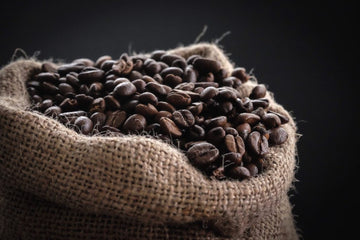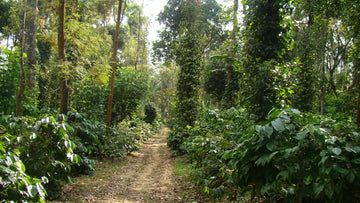From the familiar charm of the streetside kaapi bar to the third wave scene in New Delhi’s trendiest quarters, coffee is as diverse as the culture that loves it. Whether you’re just getting started on your coffee-loving journey or you’ve enjoyed your fair share of Joe, knowing the basic differences between the two most-used coffee varieties will help you explore your options and recognize quality coffee when you taste it.
Specific Growing Conditions
Arabica depends on a deep root system and prefers being 1000-2000 meters or more above sea level, and the heartier Robusta grows shallow roots in lower altitudes. India was one of the earliest countries to produce Arabicas, a fact steeped in the 17th century lore surrounding a fellow named Baba Budan and the purloined Arabian beans he brought from Yemen to Chikmangalur. Now, Robusta-born varieties account for a large percentage of the coffee grown.
Comparing at a Glance
The Arabica-grown bean has an elongated, elliptical shape when compared to Robusta’s squat, round body. This may not be apparent to everyone, but a keen eye can learn to spot the difference in a bean’s green or roasted state. It’s rare for quality roasters to blend the two varieties, but coffee destined for use in an espresso machine may have both since the Robusta-grown bean is believed to produce better crema.
Science Inside the Bean
With almost twice the amount of caffeine as Arabicas, Robustas may seem more desirable — but the Arabica doubles down on the sugar concentration and boast 60% more lipids than Robusta. This directly impacts the flavor profile once the bean is roasted, so you’ll find that boutique Indian coffee roasters like Third Wave favor Arabica-growing estates over those that produce Robusta.
Quality Behind the Cost
Robustas, being heartier and easier to grow throughout their season, incur fewer costs. The lower sugar content translates to longer shelf life, which any coffee-lover will tell you isn’t exactly a good selling point for quality coffee. Like many upscale retailers, Quick Brown Fox, Delhi based roastery,focuses on small batch Arabicas to maintain peak freshness.
Tasting is Believing
Between these two coffee varieties, Robusta packs a nutty punch that often tastes bitter and unpleasant for some — Arabica reigns supreme in flavor, offering you a fruity and full-bodied cup when the beans are grown and then roasted properly. KC Roasters, previously known as Koinonia, perfects this blend of art and science by partnering with Indian coffee estates that carefully maintain the conditions it takes to produce the superior flavor of a high quality Arabica beans.




